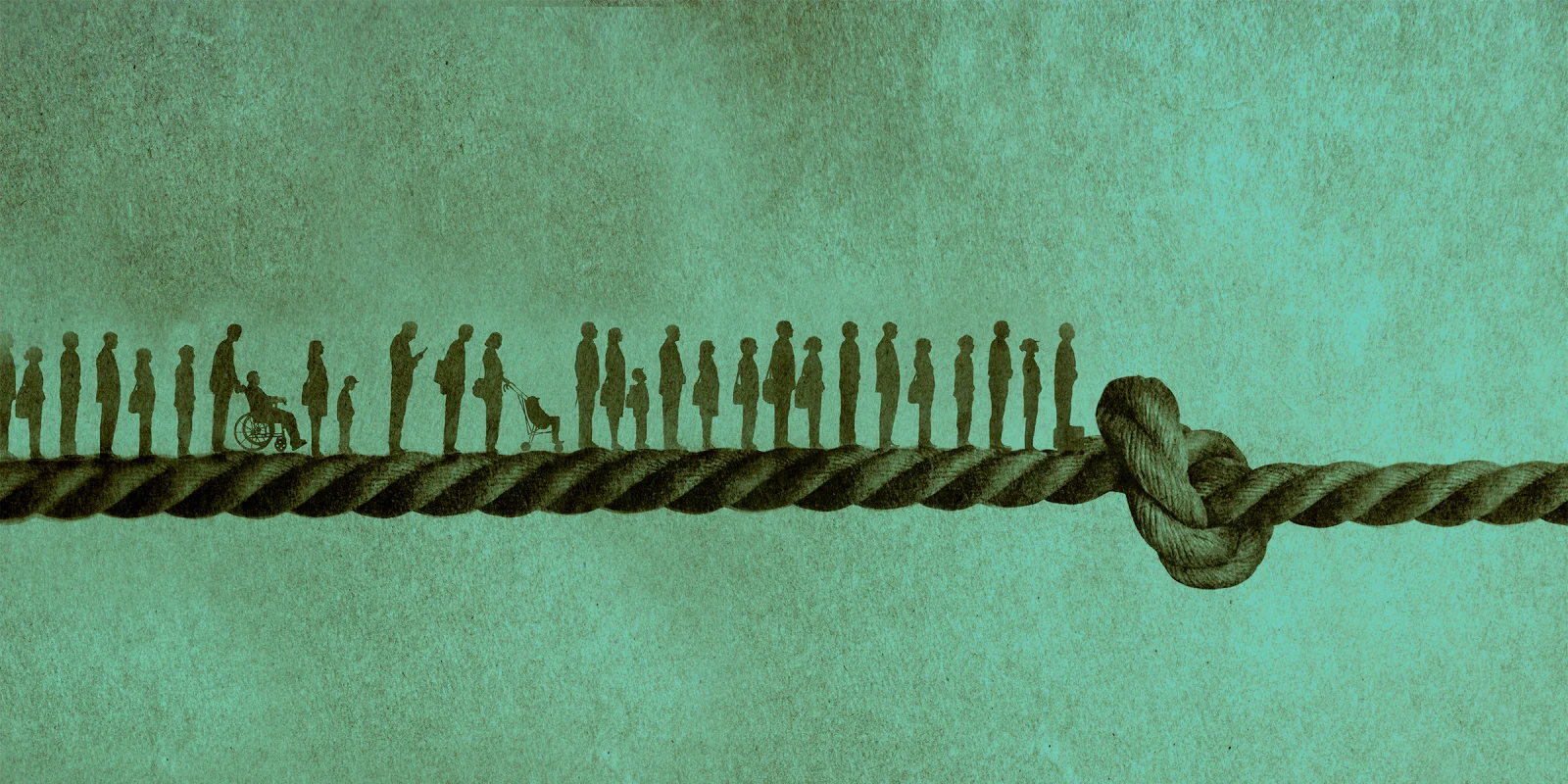“I won’t be putting myself through that again,” my patient states as she looks defeatedly down. Although this is a virtual visit, the camera can’t mask her dark under-eye bags, disheveled hair, and forlorn face. The camera can’t mask that look one gets when one has spent hours crying. She feels and looks defeated, after having spent almost an entire day in the ER in which she was seeking inpatient hospitalization for severe depression and suicidal ideation — only to be told that inpatient care wasn’t needed. She wasn’t functioning at home, in her relationships, or at work. Her marriage was wavering, her children were not recognizing their mother any longer, and she was now needing to take extended time off work.
This patient joins an all-too-long list of patients in my area who have had the experience of desperately needing treatment and crisis stabilization — a reprieve from the significant battles that inflict their minds and lives — only to be turned away. I recall her saying something to the effect of: “It seems that in order to get help and to be taken seriously, you have to show up at the hospital literally dying.”
When you have exhausted outpatient resources and have a severely depressed patient in crisis who is wanting and willing to pursue a higher level of care, it is maddening when said patient’s attempt to obtain that care is rejected — due, in part, to limited access to care. As an outpatient psychiatrist, this has been one of the more frustrating experiences for me over the years. I’m sure my patients feel it even more; they are dealing with not enough help and a system that feels overburdened and cracking at the seams. Sometimes, I am left to do an inpatient level of care on an outpatient basis as my patients have nowhere else to go and the patient is left to cope with and accept whatever care they can get. As my practice turns into a mental health urgent care, I do my best on the foundation of a strained system, as do my patients.
The state where I practice, Washington, currently has a hierarchy in place — the elevation of a designated crisis responder (DCR) — that only makes it harder for me to get help for my patients in crisis or with life-threatening or debilitating symptoms. In simplified terms, a DCR is essentially a gatekeeper, typically a Master’s degree-level mental health professional like a licensed clinical social worker, who makes the decision about whether a person meets the criteria to be involuntarily committed for psychiatric evaluation and treatment. The decision to initiate involuntary hospitalization for a patient is not left to the psychiatrist, but rather to the DCR. According to this Seattle Times article, in some counties, because the priority is to evaluate people in jails and hospitals, it may take as long as 11 days on average for a DCR to evaluate a person in the community. That’s a lot of time for a bad outcome. While this system appears to have been created to, by some measure, protect patient rights, when the decision is made to not involuntarily commit a patient whom the psychiatrist has deemed is an imminent threat, these opposing decisions can present a significant and possibly dangerous barrier for treatment.
Across Washington state (and beyond), the status of psychiatric care leaves much to be desired. Since my training, I have practiced mostly in Seattle — among the top 20 largest U.S. cities by population — and despite the size of the city, resources are nonetheless significantly lacking. Through my research, here are some of the nation-wide factors that are contributing to access to care issues: a shortage of mental health professionals, increased demand for mental health treatment, poor funding, high cost of treatment, complexities of navigating the system, limited insurance coverage, and social stigma/embarrassment in needing mental health treatment. (This is not an exhaustive list and what has created this crisis in access to care is rather complex and multi-faceted.) Having worked, in part, in community mental health treating some of the most vulnerable and ill patients, I have seen how the needs feel even graver and the dead ends in the system are even more magnified and jarring. To witness some of these patients be denied or have challenges finding higher levels of care treatment has been demoralizing, eye-opening, and confusing. It has felt like working strenuously to draw a pail of water out of a well, only to have the pail tip over and spill out at the end, needing to start again.
Although the need is high and can cause both patients and clinicians alike to feel helpless, there are glimmers of light — promising initiatives and efforts that have taken place in Seattle and Washington state at large to help alleviate the access to care burden. For example, Washington state led the way in being the first to create a 988 crisis hotline for Native and Indigenous people. In addition, there are a few new facilities and hospitals being (or projected to be) built to help add more beds and resources for patients. Finally, there have been initiatives to add psychiatric crisis relief centers in Washington state to help mitigate the burden from the prison systems and ERs, which are far too often on the front lines of psychiatric emergencies. I am grateful for these efforts, as I’m sure individuals needing psychiatric care are as well.
Reflecting back on my patient above, fortunately, through a combination of different tools and strategies and mutual hard work, she survived and improved. However, I wonder: How many patients don’t? And how many psychiatrists and other mental health clinicians are left feeling jaded and drained in doing their best to hold up a system that is cracking? Additionally, this particular patient had family support and means to navigate the system the best she could and still had difficulty; how much harder is it for a patient who is within a marginalized group and/or is negatively impacted by social determinants of health — which we know considerably influence health access and outcomes? While efforts near me are increasing and progress has been made, one thing is clear — we still have a lot to figure out, a multitude of people to help, and a long way to go.
How do you keep your optimism up in the face of a strained system? Share your strategies in the comments.
Dr. Mallory Grove is a psychiatrist in Seattle, WA. In her spare time, you can find her enjoying time with her family, thrifting, adding to her houseplant collection, baking, playing her flute, or learning to sew. Dr. Grove is a 2023–2024 Doximity Op-Med Fellow.







